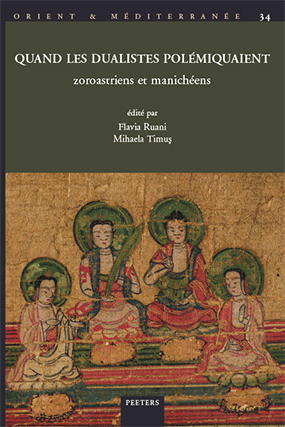Quand les dualistes polémiquaient
Zoroastriens et manichéens

édité par Flavia Ruani et Mihaela Timuş
Les auteurs de cet ouvrage montrent que le zoroastrisme et le manichéisme, qui partagent une vision dualiste du monde et des entités primordiales, ont posé de façon similaire au judaïsme, au christianisme et à l’islam la question du rapport des adeptes à la vérité et donc à l’erreur des autres. Cet ouvrage apporte donc une pierre fondamentale à l’étude du phénomène de la controverse religieuse dans l’Antiquité tardive et au début du Moyen Âge. Il nous permet de mieux appréhender deux systèmes de pensée de l’Orient, en ce qu’ils ont de commun mais aussi dans leur irréductible singularité.
The authors of this collected volume show that Zoroastrianism and Manichaeism, which share a dualist vision of the world and the primordial entities, have raised in a similar way to Judaism, Christianity and Islam the question of the relationship of their followers to truth and therefore the error made by others. The volume makes a fundamental contribution to the study of the phenomenon of religious controversy in Late Antiquity and the early Middle Ages. It allows us to better understand two Eastern systems of thought, both in what they have in common and in their irreducible individuality.
Pour en savoir plus : https://www.peeters-leuven.be/detail.php?search_key=9789042944312&series_number_str=34&lang=fr




